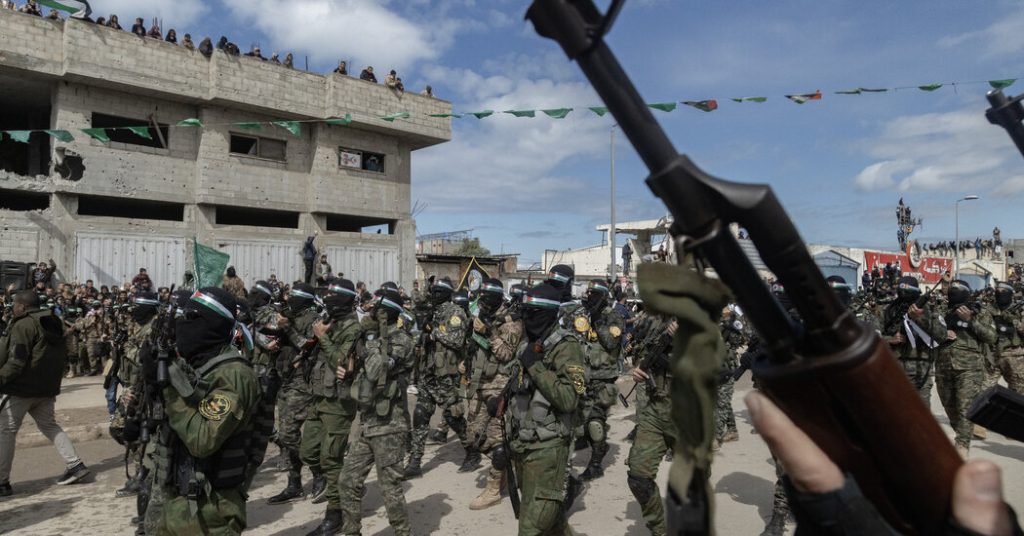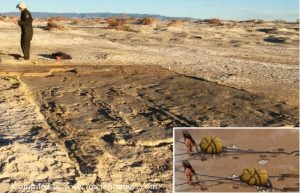For months, leaders of Hamas have defended the militant group’s decision to launch the Oct. 7, 2023 attack on Israel, even though it ignited a devastating Israeli offensive that has killed tens of thousands of Palestinians in Gaza and reduced the territory to rubble.
Hamas has declared “victory” over Israel, and some of its officials have vowed that their fighters will carry out more Oct. 7-style attacks in the future.
But now one of Hamas’s top officials is publicly expressing reservations about the assault, which also touched off a humanitarian crisis that displaced nearly two million and led to critical shortages of food and health care.
Mousa Abu Marzouk, the Qatar-based head of Hamas’s foreign relations office, said in an interview with The New York Times that he would not have supported the attack if he had known of the havoc it would wreak on Gaza. Knowing of the consequences, he said, would have made it “impossible” for him to back the assault.
Mr. Abu Marzouk has said that he was not informed about the specific plans for the Oct. 7 attack, in which roughly 1,200 people were killed and about 250 taken hostage, but that he and other Hamas political leaders had endorsed its overall strategy of attacking Israel militarily.
“If it was expected that what happened would happen, there wouldn’t have been Oct. 7,” as far as he was concerned, he said.
He also suggested that there was some willingness within Hamas to negotiate the future of the group’s weapons in Gaza — which has been a sticking point in negotiations with Israel — taking a position that other Hamas officials have rejected. A compromise might help Hamas and Israel avoid a renewal of the war, analysts say. Israel has said that it wants Hamas to dismantle its military capabilities.
Mr. Abu Marzouk, 74, the first leader of Hamas’s political office in the 1990s, made the remarks in a phone interview on Friday.
It’s unclear to what extent Mr. Abu Marzouk’s views on Oct. 7 are shared by other Hamas leaders, or if they were an attempt to influence negotiations with Israel or put pressure on fellow leaders within the militant group. Other Hamas leaders, especially those closely connected to Iran and the Lebanese militant group Hezbollah, have tended to take a harder line.
His comments suggest that there are differences among Hamas officials over the party line on Oct. 7 and its consequences. They also indicate that the frustrations of Palestinians in Gaza who say the attack has made them endure extraordinary suffering are having some impact within the Hamas leadership.
Mr. Abu Marzouk’s comments were similar to those made by Hassan Nasrallah, the leader of Hezbollah, in the aftermath of the 2006 war between Israel and Hezbollah. The scale of the destruction in that conflict led Mr. Nasrallah to concede that his group would not have kidnapped and killed several Israeli soldiers at the time had it known it would set off such a strong response.
In the coming days, Israel and Hamas are expected to start a discussion about the second phase of the cease-fire in Gaza, which calls for a permanent end to the fighting, a full Israeli withdrawal, and the release of more Israeli hostages and Palestinian prisoners. But delays in starting those talks coupled with disputes over the implementation of the first phase have reinforced fears that the truce could fall apart and the war could restart.
Mr. Abu Marzouk, who spent years living in the United States, has long been seen as one of the more pragmatic figures in Hamas. The war has exacted a heavy price on his family, with his 77-year-old brother, Yousef, killed in the fighting.
“He’s not a nihilist,” said Stanley Cohen, a lawyer and longtime friend of Mr. Abu Marzouk based in New York. “He would not support any action that he believed would bring unprecedented, wholesale retaliation by anyone on the people.”
Mr. Abu Marzouk said that Hamas’s survival in the war against Israel was itself a “kind of victory.” He also likened Hamas to an average person fighting Mike Tyson, the former heavyweight boxing champion: if the untrained novice survived Mr. Tyson’s punches, people would say he was victorious, he said.
In absolute terms, he said it would be “unacceptable” to claim Hamas won, especially considering the scale of what Israel inflicted on Gaza. .
“We’re talking about a party that lost control of itself and took revenge against everything,” he said, referring to Israel. “That is not a victory under any circumstances.”
The Israeli military has claimed that it has conducted its air and ground campaigns in Gaza in accordance with international law, and that it was carrying out attacks against Hamas, which the United States and other countries have designated a terrorist group. But legal experts have accused Israel of using force in a way that resulted in the deaths of too many civilians.
Mr. Abu Marzouk also suggested there is some openness within the Hamas leadership to negotiate the future of the group’s weapons in Gaza, a thorny issue that other Hamas officials have said is off limits.
“We are ready to speak about every issue,” he said, when asked about the weapons. “Any issue that is put on the table, we need to speak about it.”
Prime Minister Benjamin Netanyahu of Israel has insisted that his country will not end the war with Hamas without dismantling the group’s governing and military capabilities. While Hamas has expressed readiness to concede civilian governance in Gaza, it has refused to give up its weapons.
Mr. Abu Marzouk’s remarks appeared to contradict those of Osama Hamdan, another Hamas official, who told a conference in Doha, Qatar, in the middle of this month that “the weapons of the resistance” were not up for discussion, seeming to rule out a compromise.
When asked about Mr. Hamdan’s statements, Mr. Abu Marzouk said that no one leader could set the agenda on their own.
Ibrahim Madhoun, an analyst close to Hamas, said there were multiple views within the group about important issues, but when its institutions made a decision, everyone stood behind it.
Since the cease-fire first came into effect on Jan. 19, Hamas fighters have been parading around Gaza with rifles — sending a message to Israel, the international community and Palestinians that the group was still in control.
Mr. Abu Marzouk declined to answer specific questions about possible compromises on the issue of Hamas’s weapons. Those compromises might include Hamas storing its weapons in internationally supervised facilities, agreeing to forgo rebuilding its tunnel network and rocket arsenal, or stopping the recruitment of fighters. Disarmament, experts say, is unlikely.
As the talks over the second phase of the cease-fire have been held up, Israeli and American officials have increasingly spoken about extending the first phase.
Releasing some more hostages and prisoners during an extension of the first phase, Mr. Abu Marzouk added, could be discussed. But he clarified that, under any circumstances, Hamas would demand far more prisoners in exchange for each hostage because the group considers the remaining Israeli hostages to be soldiers. He mentioned 500 and 1,000 prisoners as possible figures for each hostage.
During the first phase, hundreds of Palestinian prisoners have been released, but the number of prisoners released per hostage has generally not exceeded 50.
Mr. Abu Marzouk said Hamas was also open to releasing all hostages at the same time, if Israel was willing to free the thousands of Palestinians in its prisons, end the war and withdraw from Gaza.
“We’re ready to have a comprehensive deal,” he said.
Israeli officials have previously dismissed proposals to exchange all hostages for all prisoners.
Abu Bakr Bashir contributed reporting to this article.








